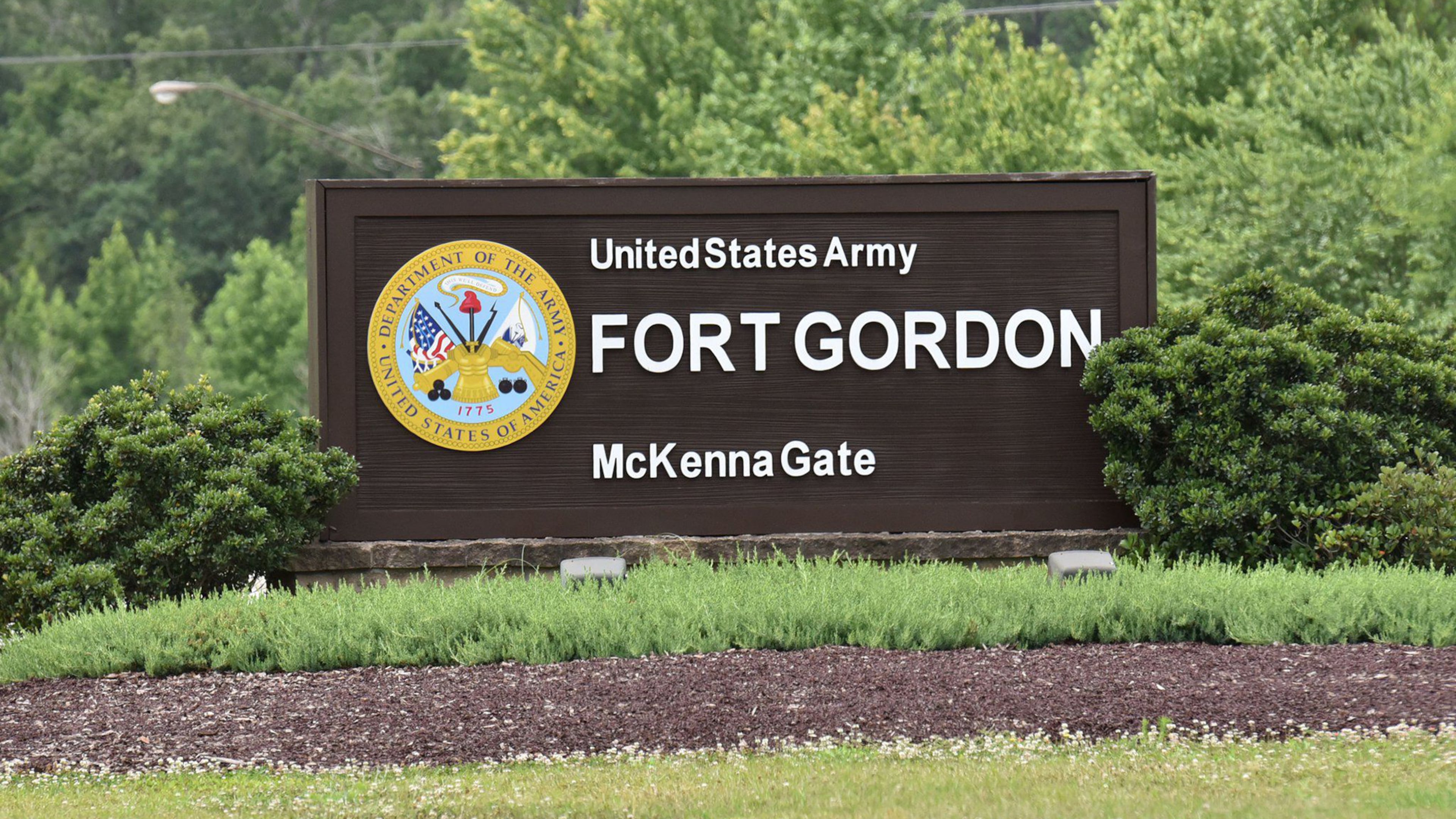Georgia’s Fort Eisenhower to be renamed Fort Gordon in broader reversal

Editor’s note: This article has been updated with additional details, including interviews with Gary Gordon’s widow and the commanding general of the Augusta base.
The Trump administration is restoring the names of seven more military installations that previously honored Confederate figures, including one in Augusta that was renamed for President Dwight D. Eisenhower two years ago.
The Augusta post was originally named after John Gordon, a Confederate general and slave owner who was generally recognized as the head of the Ku Klux Klan in Georgia.
The east Georgia base will now honor Master Sgt. Gary Gordon of Lincoln, Maine, the Army announced Tuesday. A Delta Force soldier, Gordon was posthumously awarded the Medal of Honor for his heroism during the 1993 Battle of Mogadishu, Somalia. He was also portrayed in the 2001 award-winning film “Black Hawk Down.”
His widow, Carmen Owens, told The Atlanta Journal-Constitution the Army informed her of the decision Wednesday and that his family “is extremely honored.”

The original names of the six other forts also are being restored in honor of soldiers who served in the Civil War, the Spanish-American War and World Wars I and II.
“We are also going to be restoring the names to Fort Pickett, Fort Hood, Fort Gordon, Fort Rucker, Fort Polk, Fort A.P. Hill and Fort Robert E. Lee,” President Donald Trump announced Tuesday at Fort Bragg in North Carolina during a celebration for the Army’s 250th anniversary. “We won a lot of battles out of those forts. It’s no time to change. And I’m superstitious, you know? I like to keep it going, right?”
Critics have accused Trump of seeking to stoke racial tensions with his move. The seven military installations were among nine that were renamed during the Biden administration so they would no longer honor Confederate figures. Those changes happened during renewed protests for racial justice following the violent police killing of George Floyd, a Black man, in Minneapolis in 2020.
The Army said it had not yet determined the cost for renaming the seven posts, including for signage.
Earlier this year, the Pentagon restored the names of Fort Benning in Georgia and Fort Bragg in North Carolina.
Fort Benning was originally named after Confederate Brig. Gen. Henry Benning, who helped draft Georgia’s ordinance leading to secession from the Union in January 1861. The post now honors Cpl. Fred Benning of Norfolk, Nebraska. Benning, according to the Pentagon, received the Distinguished Service Cross for his heroic actions in 1918 during WWI in France.
Fort Bragg was originally named after Braxton Bragg, a slave-owning plantation owner and Confederate general. Its new namesake, according to the Pentagon, is the late Army Pfc. Roland Bragg of Sabattus, Maine. The Pentagon said the paratrooper received the Silver Star for gallantry and a Purple Heart for wounds sustained during the Battle of the Bulge in WWII.
The Augusta post trains about 23,000 soldiers annually and supports a population of 33,000 service members, their families and U.S. Defense Department civilian employees. Most of the base’s activities support global cybersecurity operations.
It’s unclear when its signage will change, though Maj. Gen. Ryan Janovic, the post’s commanding general, said during a community meeting Wednesday that the base would “go back to being named Fort Gordon, effective immediately.”
“I expect everyone in this room to welcome each other and welcome people coming and to refer to this as Fort Gordon, Georgia,” he said.
Janovic also said he spoke to Eisenhower family members Tuesday evening.
“Each of them was gracious and kind,” Janovic said, adding the post will continue to honor the late president through its hospital, Eisenhower Army Medical Center.
The Eisenhower Presidential Library, Museum and Boyhood Home in Abilene, Kansas, did not immediately respond to a request for comment Wednesday.

The citation for Gary Gordon’s Medal of Honor says he was killed while saving the life of a downed helicopter pilot amid a fierce firefight in Mogadishu on Oct. 3, 1993. The citation adds that Gordon’s “extraordinary heroism and devotion to duty were in keeping with the highest standards of military service and reflect great credit on him, his unit, and the United States Army.”
Gordon’s widow, Carmen Owens, said Janovic emailed her about the base renaming Wednesday morning and spoke with her about it by phone the same day. The Augusta post, she added, is consulting her about holding a ceremonial event to commemorate the name change.
“The family is extremely honored to have a base named after Gary,” said Owens, a professional visual artist who lives near Fort Bragg. “The naming of a base really ensures that this conflict will never ever be forgotten — that Gary won’t be forgotten. He represents everybody whose lives were given that day.”
Owens added that her husband was quiet and humble and would be honored by the recognition, were he alive today.
“But he would also say that he was just doing his job that day,” she said, “and that would be expected of any of the soldiers that he was working with.”


